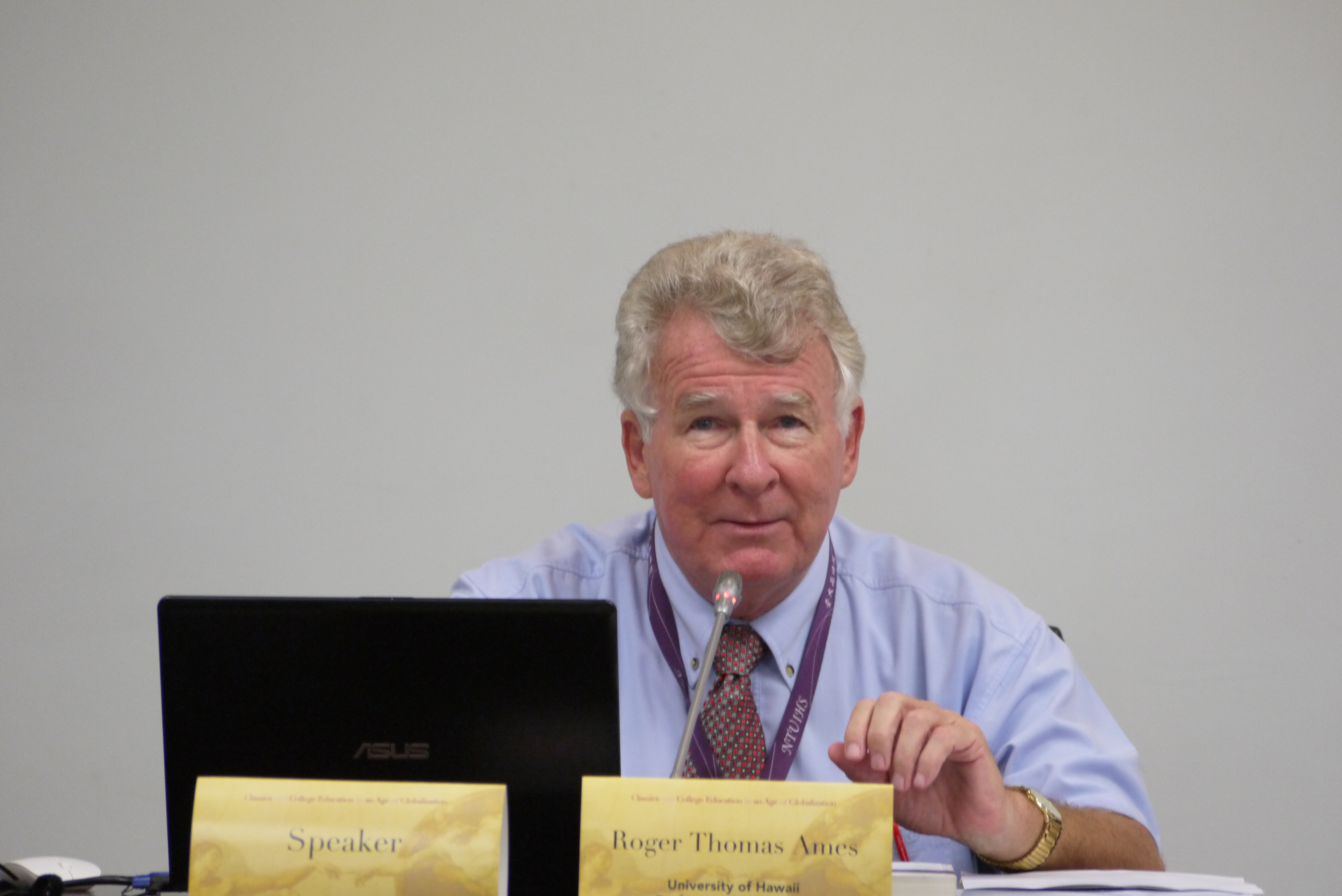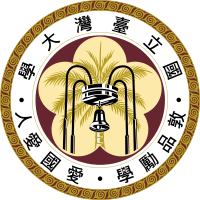【宏觀視野】A Second Enlightenment: Confucianism in a Changing World Cultural Order

Roger T. Ames
University of Hawai’i
The Perfect Storm
It is the best of times and it is the worst of times. In the beginning decades of the twenty-first century, exponential scientific and technological innovations have given human beings the opportunity to live lives of extraordinary comfort and convenience. At least in the developed world, we live longer and we live better than ever before, and it gets even better with every passing day. But limiting this human opportunity to the developed world is a boundary of our own making. As a species, we now have the science to clean the water and produce the food so that no child on the planet need go to bed sick or hungry. If only we had the social intelligence and the political will, we could in our time be embarking upon a halcyon epoch of increasing peace and prosperity.
At the same time, we are living in a moment of increasing urgency. The darkness of a perfect storm of global proportions is gathering on the horizon that will immanently threaten our familiar ways of living if not ultimately the very survival of humanity as a species. Ours is a world beset by climate change, by extreme weather events, by an ever accelerating increase in population, by gross income inequities, by food and water shortages, by environmental degradation, by looming pandemics, by energy shortage, by international terrorism, by nuclear proliferation, by consumer waste, and by growing legions of the hopeless poor. Perhaps the most disturbing element in the overall picture is the nearly vertical trajectory in the galloping pace of precipitous change as it approaches a tipping point that takes us past any possibility of return.
There seem to be at least four underlying conditions that are defining of this galloping predicament. First, human beings and our way of being in the world are complicit in some immediate way for the malaise. Secondly, this predicament does not recognize or respect national or social boundaries. Crises such as pandemics and global warming have a global reach and affect everyone regardless of nationality or status. Thirdly, there is an organic relationship that obtains among this set of pressing problems, rendering them zero-sum—all or nothing. This means of course that the problems cannot be addressed and solved seriatim by individual players. Rather, we are facing a largely human-precipitated predicament that can only be engaged wholesale by a world community acting in concert. In these pages I will argue that this increasingly dire situation can only be addressed and arrested by effecting a global-scale radical change in human intentions, values, and practices. And to our shame perhaps our best hope is it will be necessity itself rather than any enlightened awareness on the part of the human community that will serve as the imperative for change.
While this perfect storm has been gathering both globally and locally, over the past several decades a dramatic reconfiguration of the world’s economic and political order has been occurring that is now affecting us all in this age of global interdependence. Over this past generation, the rise of Asia, and particularly of China, has precipitated a sea change in the prevailing economic and political order. For example, in the quarter century since its founding in 1989, the Asia Pacific Economic Cooperation (APEC) that now consists of twenty-one Asia-Pacific nations with forty percent of the world’s population has shifted world wealth and power from a beleaguered Europe to an increasingly thriving Asia. The GDP in the region has more than tripled and trade has increased by over 400%. For more than thirty years, the Chinese economy has being growing at an annual double-digit rate of ten, eleven, twelve, thirteen percent, enabling it to overtake Japan as the second largest economy in the world with the prediction that it will eclipse the American lead within a decade. In 2010, a G8 comprised of the world’s strongest yet declining economies that could claim less than 50 percent of world production became the G20 with 90 percent of world output, and China as the factory of the world has taken up a place of privilege and influence squarely in the middle of these dominant nations.
Development generally and the global impact of China’s own growth more specifically, is producing a range of changing economic and political patterns that are relatively easy to track. But what about cultural change? What difference does this dramatic reconfiguration of economic and political dominance make for an elite world cultural order that has long been dominated by a powerful liberalism? And what will be the role of traditional Chinese customs and values in the evolution of a newly emerging cultural order?
Within China, we have over the past decades witnessed a dramatic rise of “Schools of Canonical Learning” (guoxueyuan 國學院) across college campuses. And internationally at the best institutions of higher learning across America and the globe we have seen the proliferation of now more than four hundred Chinese government-funded “Confucius Institutes” (Kongzi xueyuan 孔子學院) that are committed to promoting literacy on traditional Chinese culture. It is clear that Chinese culture is being actively promoted both domestically and internationally by a collaboration of academic and political forces within China itself. And we know that Chinese culture celebrates the relational values of deference and interdependence. That is, relationally constituted persons are to be understood as embedded in and nurtured by unique, transactional patterns of relations, a conception of person that contrasts rather starkly with the more familiar model of discrete, rational, self-determining, autonomous, and self-interested individuals that we have come to associate with liberal democracy. Will a Chinese ethic that locates moral conduct within a thick and richly textured pattern of family, community, and natural relations challenge and change the international culture? Will these family-centered values under the rapidly evolving conditions in evidence today precipitate a new cultural world order?
James P. Carse provides us with a distinction between finite and infinite games that might be useful in beginning to think through how Confucian values could make a difference in a newly emerging cultural order.[1] For Carse in formulating this distinction, “games” is really an analogy for the human experience broadly. The focus of finite games is on the agency of single actors who engage in a game played according to a finite set of rules that in a finite time guarantee a resolution—that is, a winner and a loser. Finite games thus have a finite beginning and end, and are played to win. The pervasiveness of what has become an ideology of individualism and the liberal values that attend it makes finite games a familiar model of the way in which we are inclined to think about our daily transactions as particular persons, as corporations, and as sovereign states, where such finite games seem relevant to most human activities that entail competition such as sports, business, education, foreign affairs, and so on.
Infinite games are different. There are no discernible beginnings or endings to infinite games. The focus is on strengthening relationships rather than competition among single actors, and the ultimate goal is simply human flourishing and the enjoyment of continuing to play. Further, infinite games are played according to rules that can be altered to serve the purpose of continuing the game when it appears that resolution is a possibility. The relationship among family members might be good example of the infinite games we play, where a mother is resolutely committed to continuing to strengthen the relationship she has with her son so that together they can manage whatever increasingly complex problems their lives lived together might present. In the case of infinite games, the interdependence of relationships means that the success and prosperity of mother and son is coterminous and mutually entailing—they either succeed or fail together. Infinite games are always win-win or lose-lose.
When we look for the cultural resources necessary to respond to the global and national predicament described above as a perfect storm, we might anticipate the need for a shift in values, intentions, and practices that takes us from the preponderance of finite games played among self-interested, single actors to a pattern of infinite games played through the strengthening of relationships within families, communities, corporations, and polities necessary to overcome what are the shared problems of our day. And it is a common place that Chinese culture broadly—Confucianism, Buddhism, and Daoism as well—begin from values, intentions, and conduct that is grounded in a recognition of the primacy of vital relationships that is the hallmark of infinite games. The values of Confucianism are one cultural resource that might enable humanity to weather the perfect storm and to emerge from it on a halcyon sea.
Getting Past the Ideology of Individualism
We must confront a perfect storm that is gathering on the human horizon, and must acknowledge the need for a profound change in human values, intentions, and practices. We need to move precipitously from the mentality of single actors and finite games to the recognition of the primacy of vital relationality that underlies the values of interdependence and diversity characteristic of infinite games. In order to do this, we need to address a major underlying and entrenched conceptual problem that is exacerbating our current malaise.
There is a default individualism that is appealed to first in defining what it means to be a moral person, and thus, for this moral person to act justly. This foundational individualism with its roots deep in the Western philosophical narrative dilutes our sense of moral responsibility by allowing us to describe, analyze and evaluate individual persons—psychologically, politically, and morally—in isolation from others. The enlightenment assumption that defines persons ideally as free, autonomous, rational, and properly self-interested individuals is ubiquitous in much if not most of modern Western moral and political philosophy.
This putative foundational individual is not only an ontological fiction, but moreover, because this individual so defined provides the moral and political grounding for a libertarian economic system that can no longer be seen to be a cure for most of the world’s ills, this fiction has become an insidious one. Indeed, it can be fairly argued that it is this same libertarian economic system justified as it is by appeal to individual liberty and autonomy that, far from being the cure for the world’s ills, has come to aggravate and to exacerbate the disease itself.
The concept of the autonomous individual that underlies modern moral and political philosophy has at least two malevolent effects. First, it enables libertarian capitalists, growing in their numbers in the U.S., Europe, and Asia, to claim moral purchase in justifying an unfettered human freedom as the basis and ultimate source of political justice, and on that basis, to then reject any conception of justice that retards such freedom as fundamentally immoral. The notion of the individual so defined thus continues to provide a moral basis for a more or less laissez-faire global freemarketcapitalist economy that is compounding exponentially the gross inequities in human well-being within and between modern nation states. And as long as the conservatives, liberals, communitarians, and socialists alike continue to ground their objections to libertarianism in their own version of the same autonomous individual, the libertarian will always be able to counter their challenges and remain above moral reproach.
The second related reason that the concept of the autonomous individual is pernicious is its pervasiveness in the consciousness of Western intellectuals. The foundational individual is entrenched at a depth that makes it almost impossible for them to see any alternative to an individualism so defined except that of a more or less faceless collectivism in a decidedly post-Marxist era. Indeed, the assumption that the essential characteristics and actions of human beings are best understood by regarding them as fundamentally free, autonomous, and rational individuals has itself become a default, uncritical ideology.
Such an individualism not only fails to provide us access to a sufficiently robust understanding of shared life in family and community, but further stands in tension with the empirical fact of associated living. Indeed, such a fictive individualism ignores the intimacy, mutuality, and particularity that is invariably defining of relations in real families. In failing to accommodate family roles lived through richly textured and constantly changing patterns of both natural and socially constructed differences, abstract individualism itself becomes reductive and violent by enforcing conformity at the unacceptable expense of excising real diversity and its creative possibilities.
A Second Enlightenment: From the Ideology of Individualism to Confucian Role Ethics
Confucianism has a focus-field conception of person that provides just such a robust alternative to liberal individualism. We might want to reflect upon the sui generis regimen of “Confucian role ethics” to argue that lives lived in our evolving roles as children and parents, as beneficiaries and benefactors, are too intimately bound up with one another to allow for the divisive and fragmenting assumptions that ground liberal individualism. We live associated lives, and are irreducibly social not only in the transactions that constitute our unique narratives, but in our most basic, role-informed sense of personal identity. The omnipresent responsibilities of family life not only direct our attention to the pressing current and future concerns of the day, but they also provide us with a historical and narrative sense of where we have come from, and in important degree, tell us who we are.
Within the interpretive framework of Confucian philosophy, associated, interpersonal living is taken to be an uncontested, empirical fact. Every person lives and every event takes place within a vital natural, social, and cultural context. Association being a fact, our different roles lived within family and society are nothing more than the stipulation of specific modes of associated living: mothers and grandsons, teachers and neighbors. But while we must take associated living as a simple fact, the consummate conduct that comes to inspire and to produce virtuosity in these stipulated roles lived in family, community, and the cultural narrative broadly—that is, Confucian role ethics—is an achievement; it is what we are able with imagination to make of the fact of association.
The meaning of the family is implicated in and dependent upon the productive cultivation of each of its members, and by extension, the meaning of the entire cosmos is implicated in and dependent upon the productive cultivation of each person within family and community. Personal worth is the source of human culture, and human culture in turn is the aggregating resource that provides a context for each person’s cultivation. While certainly having important theoretical implications, the enduring power of this Confucian project is that it proceeds from a relatively straightforward account of the actual human experience. It is a pragmatic naturalism in the sense that, rather than relying upon metaphysical presuppositions or supernatural speculations, it focuses instead on the possibilities for enhancing personal worth available to us here and now through enchanting the ordinary affairs of the day. A grandmother’s love for her grandchild is at once the most ordinary of things, and the most extraordinary of things.
Confucius by developing his insights around the most basic and enduring aspects of the ordinary human experience—family reverence, deference to others, friendship, a cultivated sense of shame, education, community, and so on—has guaranteed their continuing relevance. One characteristic of Confucianism that is certainly there in the words of Confucius himself and that has made his teachings so resilient in the Chinese tradition, is its porousness and adaptability. His contribution was simply to take ownership of the cultural legacy of his time, to work assiduously to understand and to extend this legacy with his own best thoughts, to adapt this wisdom of the past to his own present historical moment in addressing the pressing issues of his time, and then to recommend to next generation that they do the same.
The personal model of Confucius that is remembered in the Analects does not purport to lay out some generic formula by which everyone should live their lives. Rather, the text recalls the narrative of one special person: How he in his relations with others cultivated his humanity, and how he lived a fulfilling life, much to the admiration of those around him. Indeed, in reading the Analects, we encounter the relationally constituted Confucius making his way through life by living his many roles as best he can: as a caring family member, as a strict teacher and mentor, as a scrupulous and incorruptible scholar-official, as a concerned neighbor and member of the community, as an always critical political consultant, as the grateful progeny of his progenitors, as an enthusiastic heir to a specific cultural legacy, indeed, as a member of a chorus of joyful boys and men singing their way home after a happy day on the river Yi. He offers us historical models rather than principles, and exhortations rather than imperatives. The power and lasting value of his insights lie in the fact that these ideas are intuitively persuasive, and readily adaptable to the conditions of ensuing generations, including our own.
Indeed, invoking the Chinese natural cosmology as context, what makes Confucianism more empirical than empiricism—that is, what makes Confucianism a radical empiricism—is the fact that it respects the uniqueness of the particular, and the need for a generative wisdom that takes this uniqueness into account in anticipating a productive future. Rather than advancing grand universal principles and assuming a taxonomy of natural kinds grounded in some notion of strict identity, Confucianism is modest in proceeding from always provisional generalizations made from those particular historical instances of successful living, the specific events recounted in the narrative of Confucius himself being a case in point.



